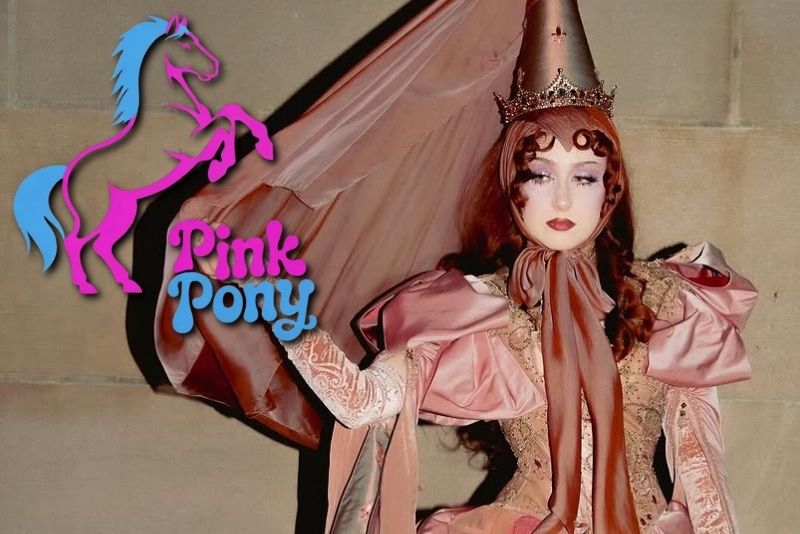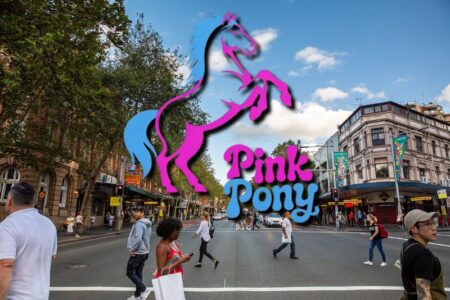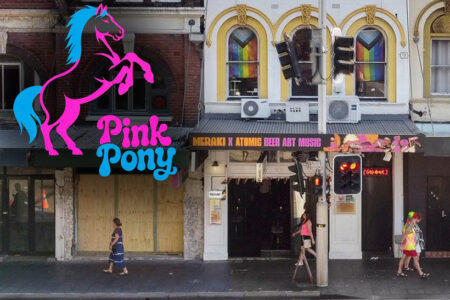Opinion: News of a new Sydney club called Pink Pony initially gave lesbians like me hope for a venue where we could truly feel at home, writes Isabella Freeland (@bellabeenaa). But its “vision” statement – and comments about its “preferred clientele” being gay men – felt like a betrayal, and highlighted the real lack of a dedicated clubbing space for queer women.
I don’t know why the prevailing belief is that all lesbians want to do is stay home, drink tea and knit. Believe it or not, a lot of us want to be on a sweaty dance floor on a Saturday night.
We want to make out with strangers (and occasionally regret it). And we want to pass around poppers (and occasionally get them confiscated).

When Pink Pony announced it would “unashamedly” cater to gay men and that it only wanted 10 per cent of its patrons to be women at any one time, I was disappointed but not surprised. The use of a Chappell Roan (famous lesbian) song as the place name certainly rubbed salt in the wound, but it wasn’t a shock (Editor’s note: the venue has since announced it will rename itself following online backlash).
Non-male queer people have long been treated as second-class citizens in the LGBTQIA+ world. My straight friends are always surprised when I tell them the community isn’t always inclusive. “Isn’t that like…the whole point?” they’ll ask.
If I wanted to go out and meet someone on a Friday night in Sydney, I don’t know where I’d go to do it. On the weekends, there is no dedicated, permanent space for queer women.
I am by no means arguing that men shouldn’t have their own space. They absolutely should. It is equally important for them to feel seen and safe. But I don’t understand why they get all of them, and we get none of them.
Queer spaces that do have “women’s nights” are almost always during the week and are rarely dance-focused. Call me crazy, but I don’t really want to have a massive one at 6.30pm on a Tuesday.
When was the last time a permanent, lesbian-focused club (not run club, not pop-up event) existed in Sydney? It was certainly long before my time as an adult (I’m almost 25, for reference). I love Birdcage as much as the next person, but Wednesdays are an impractical day to go out as a working adult. The mid-week timing also means the crowd skews young.
This isn’t the first time I’ve opined on this topic, and the responses to my complaints about the lack of spaces are always the same. There are three stock responses, and I will provide a rebuttal to each in turn.
The first and most common one is that a market for lesbian spaces doesn’t exist, and that many have tried and failed. Specifically, people say that lesbians will meet someone on a night out, and then U-Haul it (move in together after a short period of time, for those not in the know) and never go out again.
I’d argue that there hasn’t been an attempt at a permanent lesbian club in a hot minute. I’m happy to be proven wrong! But I don’t think I will be.
I’d also posit that many lesbians are just as happy going out with their partners as going out when single. Many people in relationships enjoy going out not just for the possibility of meeting someone, but to be surrounded by community! Can we not even be given a chance at turning out to a venue? Put us on probation if you have to, but give us a shot! We won’t disappoint!
The second is that queer spaces are for everyone, but women rarely attend. I want to explain why a lot don’t.
Many gay men make us feel unwelcome. They often use their gayness as an excuse to be extremely physical with us (no consent, obviously), in the same way that straight men do. Their rationale is always that because there’s no sexual intent, it’s fine. We’re just having fun! Rubbing my genitals against your back is fine, because I don’t actually want to f— you!
They will also often be domineering, and love to chuck us a side-eye on the dance floor if we’re taking up too much space (usually once there are women on more than 10% of the centre dance floor).
If I’m at a queer venue with mostly men, those men will almost always assume I’m straight and looking to have a good time with them, rather than pick someone up myself (or just enjoy the night with my friends). I couldn’t count the number of times I’ve been asked, “Why are you here?” at a queer or gay club. I would never ask them, or anyone, the same question. Should I need dyke tattooed on my forehead?
I remember going to the official Mardi Gras party at the Hordern Pavilion in 2020 with two female friends. This event is not advertised as “men only”. We felt so unbelievably out of place. I can’t even describe it. The event sees up to 10,000 people attend, and I am not exaggerating when I say that I think there would’ve been fewer than 100 women there. That’s 1%. It’s safe to say I haven’t been back since.
Many spaces that once felt welcoming have since been taken over by straight people. Straight girls are sick of getting groped in clubs and don’t want to be hit on by random men (I get it), so they come to queer clubs. The Imperial in Erskineville is a good example of this. Thirty-year-old white women love nothing more than to end a hen’s night at the Impy. I’m happy they’re happy there, but when my friends and I don’t get let in because 30 straight women are inside instead, I can’t help but feel a bit pissed.
The final response to my complaints is that I should open a lesbian club myself. To that I say: I’d love to. Unfortunately, as a 24-year-old journalist, I don’t have the means to. If I’m rich in the future, I will.
So, is it possible for all queer people to coexist on a night out? Yes, I really believe it is. I owe this belief to Heaps Gay, whose events usually attract a roughly 50–50 gender split. You can kiss whoever you want and never have to explain why you’re there. Heaps Gay restores my faith in the community and the power of queer magic.
All of this said, there are some fantastic lesbian groups that do regular night-out style events. Birdcage is every Wednesday night upstairs at the Bank Hotel. SheBar, organised by Lesbian Run Club, is every Wednesday night at La Farmacia. Cowboy Cuntry host queer line dancing every second Friday at The Imperial.
All that’s missing is a physical, permanent space that is ours and that we don’t need to hire out mid-week, or share. One that is “unashamedly” for the girls.
Isabella Freeland is a Sydney journalist
Isabella Freeland
Isabella Freeland is a Sydney journalist.


